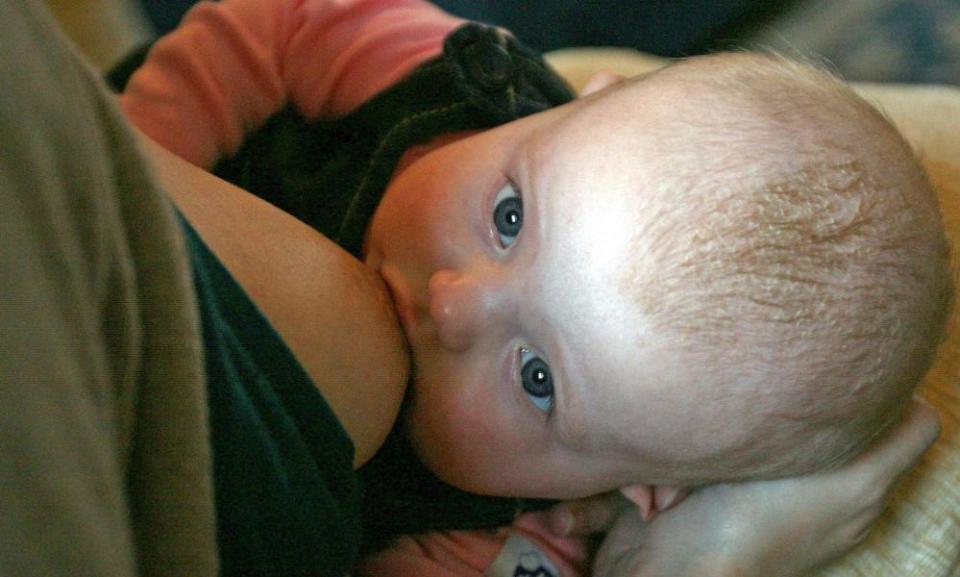Breastfeeding improves cognitive ability for children of poorer mothers – study

Children of poorer mothers who breastfeed are much better at tasks involving speaking, drawing and comprehension as a direct result, a British study has found.
They do 8% better in tests of their cognitive ability up to the age of seven – if they were breastfed for at least three months – than those who were bottle-fed, according to the research.
Breastfeeding boosts brain development among the offspring of disadvantaged mothers to such an extent that they are better prepared than children reared on formula milk to start primary school.
The findings provide significant new evidence that breastfeeding is good for children. Nevertheless, while previous studies have mainly linked intake of breast milk at an early age to physical health, this new paper – based on analysis of data on almost 6,000 British children – is one of the first to show that it improves their cognitive skills.
The study also found that women with a low level of education who gave birth at the weekend were less likely to breastfeed their child because of a lack of staff on duty in hospitals to help them establish the habit.
The research was undertaken by Prof Emla Fitzsimons from University College London’s Centre for Longitudinal Studies and Prof Marcos Vera-Hernandez, from its economics department. They analysed data on a nationally representative sample of nearly 6,000 British children born across the UK during 2000-02 who are taking part in the Millennium Cohort Study, whose mothers left school before turning 17 and who had a natural or low-risk birth.
Fitzsimons said that their findings on cognitive development were “statistically significant”.
Related: ‘Aggressive’ marketing of formula milk flouts code, warns WHO as it urges curbs
They found that, for example, at the age of three, breastfed children scored on average 9.88 points more at using “expressive language” – in which they are shown pictures of objects and asked to name them – than the average for all children, which was 70.4 points.
Three-year-old breastfed children also scored an average 8.3 points more for “school readiness” – command of core skills involving literacy and numeracy – than the average among all children of that age, of 22.2.
The same differences were seen when children were tested again at the age of five, and were also seen at that age in an assessment of visuo-spatial skill – their ability to replicate a design using pattered squares – and “pictorial reasoning”, in which they analyse pictures.
The study, published in the American Economic Journal: Applied Economics, says: “Our results, which apply to mothers with relatively low levels of education, are striking. We find strong effects of breastfeeding in children’s cognitive development, the effects of noncognitive skills are inconclusive, and we find no evidence of effects on health during this period of childhood.”
Better-off women are much more likely to breastfeed than poorer ones. The UK-wide Infant Feeding Survey of 2010, which contains the most recent data on the subject, found that only 30% of women who left full-time education at the age of 17 or 18 had breastfed their child for at least four months whereas 56% of those who left after 18 did so.
The Royal College of Midwives urged the NHS to improve breastfeeding support.
“There is substantial and growing evidence around the health benefits of breastfeeding to the health of the mother and baby, and on the baby’s cognitive development,” said Clare Livingstone, its professional policy adviser and lead on infant feeding.
“It is vital therefore that maternity services are always adequately staffed so that midwives and maternity support workers can provide high-quality support to every mother on infant feeding. The current and worsening midwife shortage in England and growing staffing issues in other UK countries are certainly making this difficult to achieve.
“Not everyone can – or chooses to – breastfeed and other influences, including socioeconomic and education factors also play a part. It is a complex picture, but undoubtedly, mothers’ access to breastfeeding support is crucial.”

 Yahoo Movies
Yahoo Movies 